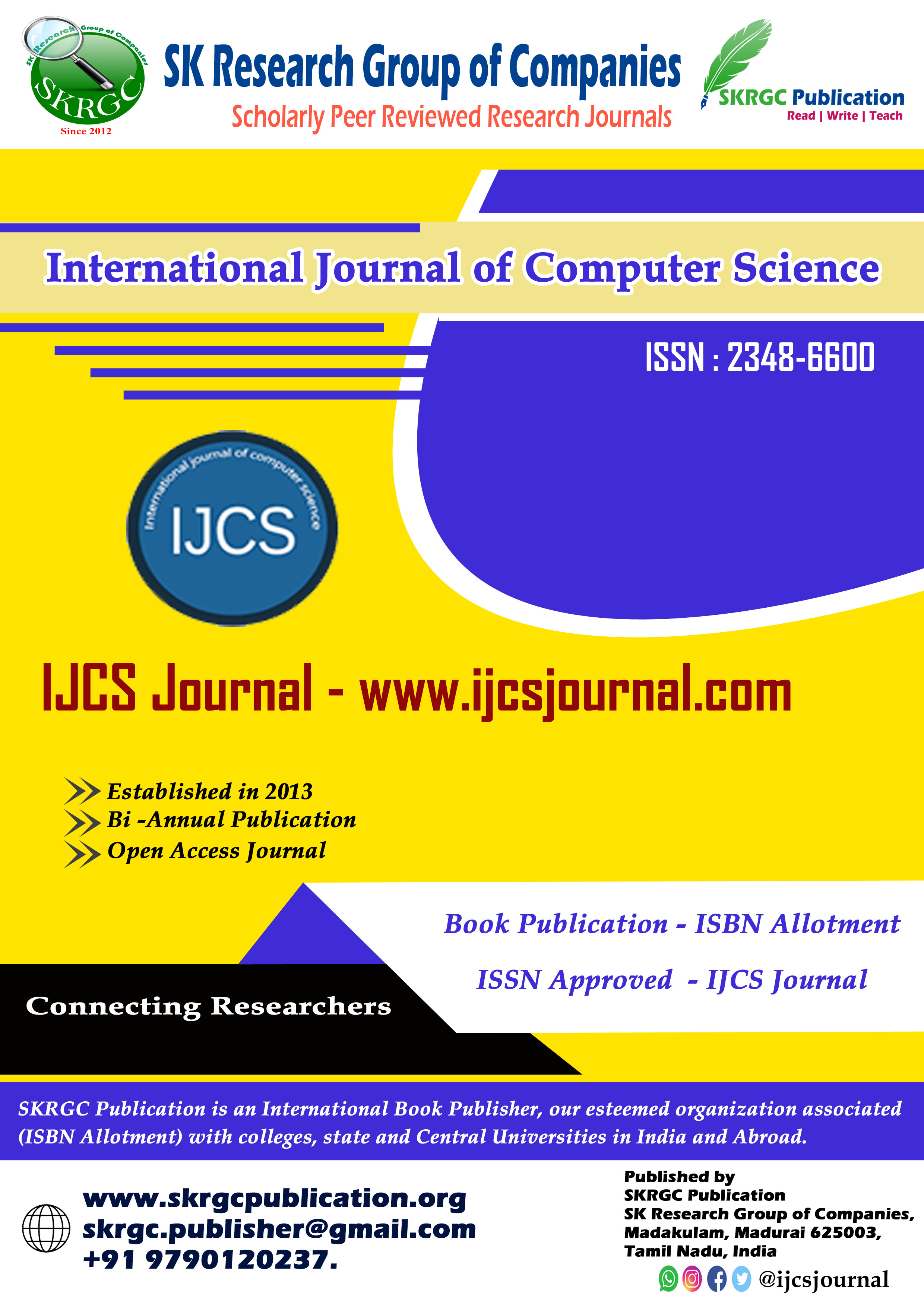WSNS SECURITY ENHANCEMENT BASED ON A GAME THEORY
International Journal of Computer Science (IJCS) Published by SK Research Group of Companies (SKRGC)
Download this PDF format
Abstract
This script investigates how game theory might enhance community security in wireless sensor networks. Large numbers of sensor nodes that are deployed randomly or in a predictable pattern make up wireless sensor networks. The goal of this project is to provide wireless sensor networks with network protection so that detection information may be efficiently transmitted to the receiver, extending the system's lifespan. To perform this task, an unique protocol was developed using game theory. The mathematical analysis of interactive decision-making processes is supported by game theory. It provides resources for forecasting what could (and ought to) happen when actors with competing interests interact. It is not a singular approach, but rather a collection of modelling tools that aid in the grasp of interactive decision-making to solve problems. The proposed Game Theory methods are successfully applied to prevent Denial of Service attacks, to identify and guard against malicious sensor node behaviour in Wireless Sensor Networks, and it has been demonstrated that the operation of those games significantly reduces tunnel misbehaviour, conserves node power, and extends the network lifetime economically. Using Network Simulator NS2, the suggested approach was tested and confirmed through simulation.
References
1. Game Theory and Wireless Sensor Networks: An Overview, by Bijaya Ketan Panigrahi, Charanjit S. Jutla, in Wireless Sensor Networks: Recent Advances and Future Challenges, by Charanjit S. Jutla, Bijaya Ketan Panigrahi, CRC Press, 2016.
2. Game Theory in Wireless Sensor Networks: Overview and Challenges, by Zhenhai Zhu, in Wireless Sensor Networks: Selected Research Topics, by Zhenhai Zhu, Elsevier, 2016.
3. Game Theory for Wireless Sensor Networks: A Tutorial, by H.V. Poor, in Wireless Sensor Networks: From Theory to Applications, by H.V. Poor, Cambridge University Press, 2011.
4. Game Theory for Wireless Sensor Networks: A Survey, by S.K. Das, S.K. Das, in Wireless Sensor Networks: Architectures and Protocols, by S.K. Das, Springer, 2008.
5. Game Theory and Wireless Sensor Networks, by X. Li, W. Lou, in Wireless Sensor Networks: Technology, Protocols, and Applications, by X. Li, W. Lou, Wiley, 2008.
6. Game Theory in Wireless and Sensor Networks: Fundamentals and Applications, by Kamal Jain and Vinod Sharma, 2018.
7. Game Theory for Wireless Networks: Theory, Models and Applications, by Geert Heijenk and Joost Kok, 2016.
8. Game Theoretic Methods in Wireless Sensor Networks: From Theory to Reality, by Wei Yu et al., 2012.
9. Game Theory in Network Security: A Comprehensive Introduction, by Günter Schäfer, 2016.
10. Game Theory and Signal Processing for Wireless Communications, by Wei Cai and Shuguang Cui, 2013.
11. Game Theory for Networks: An Introduction, by Mihaela van der Schaar, 2012.
12. Game Theory in Communications: Theory, Applications, and Networks, by Jun Wang et al., 2016.
13. Game Theory in Wireless and Communication Networks: Theory, Models and Applications, by Tamer Ba?ar and Geert Heijenk, 2010.
14. Advanced Topics in Wireless Communications and Networks: Game Theory and Network Security, by Lajos Hanzo et al., 2011.

